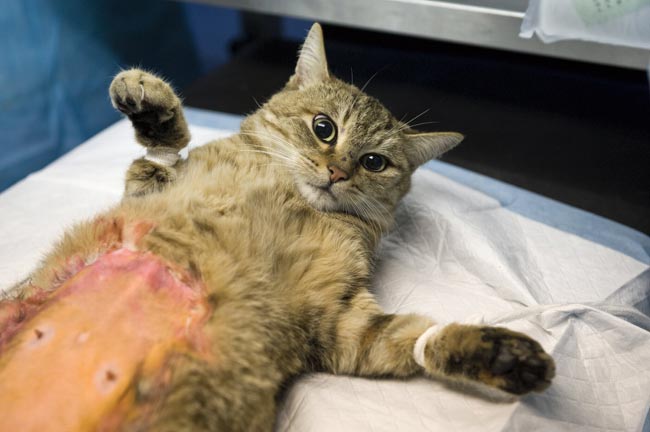 |
| A cat is?to be sterilized in Shanghai in this?December 1, 2009 file photo. [Photo/Asianewsphoto] |
According to the Zhejiang Small Animals Protection Association, Hangzhou has more than 300,000 stray cats, most of them unsterilized and unvaccinated.
Chen Xiaoming, director of the Hangzhou Animal Husbandry and Veterinary Bureau, said the trap-neuter-return program will humanely trap stray cats in the city, sterilize them and return them to the locations where they were found. "We have located communities in the city with large populations of stray cats. Our workers and volunteers will catch the stray cats and send them to clinics to be sterilized," he said.
The government is spending 300,000 yuan ($48,000) on the program, mainly in subsidies to veterinary clinics that perform the neutering and spaying operations.
Chen said three to five clinics in the city's downtown area will be selected this month to perform the bulk of the operations.
"Residents from communities that don't have large stray cat populations can still bring in strays to appointed vet clinics for treatment," he said.
Zhu Shuilin, secretary-general of the Zhejiang Small Animals Protection Association, said the trap-neuter-return method is considered worldwide to be the most humane and effective strategy for controlling stray cat populations.
"Cats are fecund. Getting their population under control can reduce transmitted diseases," he said.
But the program is a relatively new idea in China, Zhu said, and people may consider it inhumane.
"Actually, the program is not only beneficial to society, but also to stray cats. Without regular control of their population, the slaughtering of stray cats is frequent," he said.
Zhu said that although the program can effectively control stray cat populations, residents should be responsible for their pets.
"If you keep a cat, do not abandon it," he said.
In most Chinese cities, controlling stray animal populations with the trap-neuter-return method is funded by nongovernmental organizations. After the Beijing government began funding such a program for stray cats in 2008, the number of stray cats receiving the treatment rose significantly, according to city officials.
yanyiqi@chinadaily.com.cn
Stray cats patrol Forbidden City
